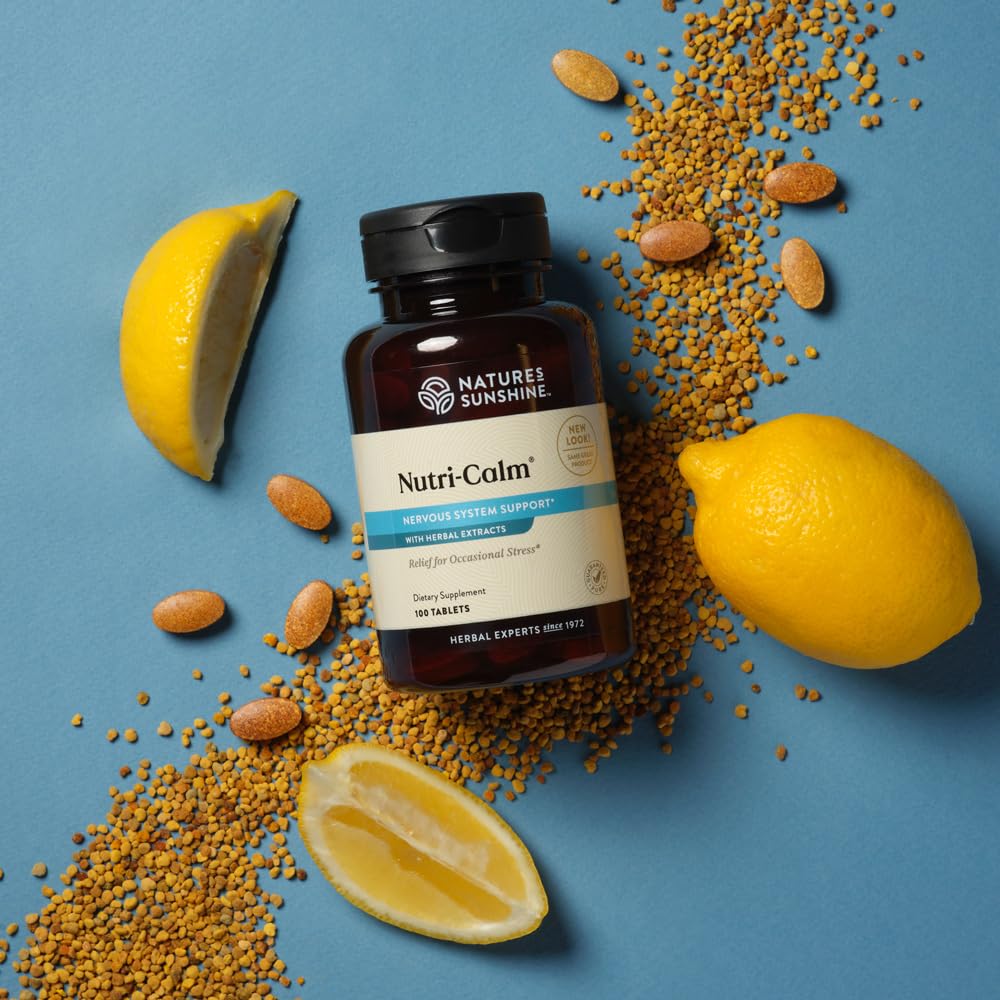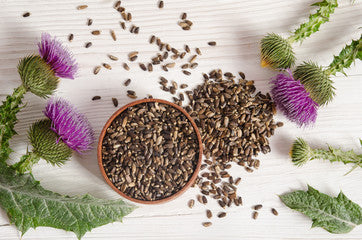
Related products
Marjoram, scientifically known as Origanum majorana, is a perennial herb well-regarded for its aromatic leaves. It is predominantly used in culinary applications across Europe and the Middle East, lending its floral sweetness to various dishes such as stews or sauces. Marjoram is also prominently featured in traditional medicine due to the array of health benefits associated with this versatile plant.
Most notably recognized for alleviating digestive issues, Marjoram's advantages range from anti-inflammatory properties to potential mental wellness enhancements. These therapeutic attributes are believed to be often attributed to rosmarinic acid and other bioactive compounds richly present within the herb.
However, alongside notable merits come certain risks tied with excessive consumption – ranging from skin irritation when applied topically without dilution or possible drug interactions if taken concurrently with blood-thinning medications.
Dr Elizabeth Thompson - CEO of the National Centre for Integrative Medicine, emphasises, "Like any form of medication, natural does not automatically mean safe; herbal treatments can carry risk, especially if used incorrectly." Hence, she advises anyone contemplating incorporating marjoram or similar herbs into their regimen to opt for consultations initially, ensuring safety above all else.
What Is Marjoram?

Marjoram is a perennial herb from the mint family, scientifically known as Origanum majorana. Indigenous to the mediterranean regions and Cyprus, it has gained global recognition for its unique aroma and flavour profile across various culinary preparations.
Distinct for its petite leaves that bear grey-green hues, Marjoram imparts an aromatic sweetness with subtle citrus undertones. It enhances the flavours of dishes around the world, notably in Italian cuisine, proving integral within mixes such as Herbes de Provence and Za'atar.
Beyond gastronomy realms lies Marjorams' rich therapeutic legacy, attributed primarily to the presence of numerous bioactive compounds like carvacrol and rosmarinic acid. These compounds are renowned extensively for potential anti-inflammatory, antiviral, and even digestive advantages, establishing this humble plant as a strong contender amid traditional herbal treatments prevalent worldwide.
Despite being commonly mistaken due to shared botanical lineage, oregano marjoram possesses milder, subtler tones, clearly distinguishing both herbs while simultaneously offering versatility unparalleled among contemporaries, whether serving medicinal needs or satiating gourmet palates firmly securing irreplaceable place health well-being sectors marked evidently on global stage indeed beyond dispute comprehensively encapsulating what Marjoram truly represents today.
Benefits of Marjoram

Digestive Aid
Marjoram is enriched with essential oils like eugenol, which are known for stimulating digestive enzymes and aiding in the breakdown and absorption of nutrients. As digestion optimises, associated discomforts such as bloating or constipation diminish noticeably.
Anti-Inflammatory Properties
Terpenes, particularly carvacrol and thymol, present in Marjoram, offer potent anti-inflammatory effects that help reduce swelling at a cellular level, directly easing conditions such as arthritis or muscular spasms.
Promotes Heart Health
Antioxidant compounds abundantly bestowed upon marjoram, notably rosmarinic acid and flavonoids, aid specifically in maintaining arterial health by reducing lipid oxidation, thus lowering risk factors typically associated with cardiovascular ailments and effectively promoting overall heart well-being.
Mental Wellness Enhancer
Natural compounds contained within Marjoram, notably linalool, induce a calming effect on the nervous system, helping ease anxiety-related symptoms. This proves highly advantageous amidst increasingly stress-prone lifestyles commonplace today, ensuring mental wellness is maintained well alongside physical aspects, which are equally important, indeed often overlooked, inadvertently breaking this cycle holistically.
Menstrual Pain Relief
Ancient medicinal practices employed the usage of Marjoram oil massaging onto the lower abdomen area has shown empirical evidence demonstrating decreased discomfort levels post-application, signifying efficacy fundamentally relieving menstruation-related problems prominently further reinforcing therapeutic ethos deeply entwined plant inherently providing women comfort naturally without relying excessively on conventional painkillers witnessing side-effects invariably ultimately highlighting natural alternative worth exploring undoubtedly.
Antimicrobial Benefits
Packed with phytochemicals serving naturally derived antimicrobials resistance against various bacterial infections bolstered rendering protective shield warding off harmful pathogens establishing strong immune barriers protecting body efficiently while simultaneously enhancing immunity progressively emphasising the importance of incorporating herbs akin to Marjoram into daily lifestyle choices predominantly keeping illnesses bay effortlessly collectively forming holistic approach fostering health well-being sustainably long-term truly encapsulating power nature exemplified perfectly through Marjoram.
Integrating this comprehensive knowledge into daily routines provides the foundation for harnessing the full potential bestowed naturally by herbs akin to Marjoram, offering profound improvements in quality of life. This amplifies Marjoram's significance and acclaim received globally until now, indeed beyond measure, truly encapsulating miraculous essence enshrined deeply within nature herself, ultimately manifested beautifully via invaluable herbs like Marjoram undeniably.
Potential Risks
While marjoram is widely admired for its culinary and medicinal properties, it's also important to be aware of the potential risks associated with this aromatic herb. Each individual's response can vary depending on their health profile and conditions. Hence, strategic use garners significance to reap maximum benefits while minimising any negative fallout. Some of the potential risks associated with marjoram include:
- Allergic Reactions: Certain individuals might experience an allergic reaction to Marjoram, resulting in symptoms such as skin rashes or difficulty breathing. It's essential for those with known plant-based allergies to approach usage cautiously.
- Drug Interference: Consuming Marjoram alongside certain medications -particularly blood thinners- has been linked with instances of increased bleeding due to the potency inherent natural compounds present within the herb, amplifying effects unnaturally initiating unwarranted complications subsequently necessitating caution use ensuring no adverse incidents occur inadvertently, primarily.
- Pregnancy and Breastfeeding Concerns: A word of caution extended towards expectant mothers considering high doses are believed to trigger menstrual flow, leading to potential risks during pregnancy, thus warrant abstaining from consumption, especially crucial stages, further emphasising prudent application amidst sensitive conditions, essentially avoiding unnecessary mishaps ideally henceforth.
- Skin Irritation: Topical application of undiluted Marjoram oil has been proven to cause irritation to sensitive skin, signifying careful dilution necessary before use to prevent discomfort.
How To Add Marjoram To Your Diet
Given its versatile nature, Incorporating Marjoram into a diet is effortless. The herb's unique sweetness and slight spice blend well with various dishes across world cuisines.
- Enhance Soups: Fresh or dried leaves added towards the end ensure maximum flavour retention, enriching soups' depth as temperatures extract natural oils, releasing aromatic flavours typically distinctively to Marjoram primarily.
- Savoury Baking: Enrich bread or pastries by folding finely chopped Marjoram into the dough before baking. This introduces a gourmet touch, elevating ordinary baked goods uniquely deliciously. It maintains subtlety while equally balancing robustness to ensure taste buds are satiated perfectly.
- Add Flavoursome Twist in Pizzas: Sparse scattering atop pizzas before grilling enables enhanced already rich tapestry flavours elegantly coupled with tantalising smells emitted during the cooking process, making irresistible cuisine elevated another level of tastiness.
Bottomline
Marjoram, a perennial herb from the mint family, is cherished for its culinary and medicinal uses. It supports digestive health, combats inflammation, boosts heart function due to antioxidants, and potentially improves mental well-being. However, as with any substance, several cautions exist, including potential allergic reactions, certain drug interactions, and even specific pregnancy-related concerns alongside possible skin irritation following topical application involving undiluted oil, essentially necessitating careful management use above all else.
Integration of this versatile plant into diets proves simple - from enhancing soups, adding a unique twist to savoury baking, or elevating pizza flavours, thereby promoting balanced lifestyle choices actively. All these factors combine, making Marjoram an excellent example of how nature provides tools for better health, emphasising the crucial role herbs play in fostering holistic living sustainably, indeed elegantly underlining the deep-rooted belief that the best route towards long-term wellness invariably remains entrenched within green paths unfailingly.
Frequently Asked Questions
What are the side effects of Marjoram?
Side effects of Marjoram primarily include potential allergic reactions, drug interactions, particularly with blood thinners due to the herb's anticoagulant properties, and possible skin irritation upon topical application of undiluted oil. Pregnant women need to be cautious, as excessive consumption might stimulate menstrual flow.
What is Marjoram best used for?
Known best for its culinary uses across numerous cuisines globally, Marjoram adds a unique flavor to dishes while imparting various health benefits, chiefly digestion enhancement, anti-inflammation, and mental wellness promotion, demonstrating versatility impressively so.
Can you drink marjoram tea every day?
When it comes to drinking marjoram tea every day, moderation proves key owing to the substantial therapeutic attributes present within the plant. According to experts, regularly consumed in controlled quantities does more good than harm, promoting well-being holistically.
Is Marjoram good for blood pressure?
With respect to Blood pressure impacts, studies show that components like carvacrol found in Marjoram offer vasodilatory effects that effectively aid in maintaining healthy levels, although empirical evidence required further corroborating findings to substantiate claims notably.
Is Marjoram good for hormones?
Marojarm contains compounds phytoestrogens known to mimic oestrogen functionality, indirectly influencing hormonal balance body overall, suggesting beneficial implications such as regulation of menstruation potentially relieving associated discomforts prominently highlighting the importance herbs fostering hormonal health sustainably indeed seamlessly alike no less certainly whatsoever quite evidently so fundamentally aptly underscoring significance they hold amongst widespread female populace specifically worth noting importantly beyond measure indubitably.
Is Marjoram good for sleep?
The credit mainly goes to a compound in Marjoram called Linalool for enhancing sleep. This substance induces calming and soothing effects on the nervous system, creating an environment conducive to optimal rest. The result is improved sleep quality, reflecting its value as an effective natural aid towards peaceful slumber - a crucial part of overall well-being. Adding it into daily routine aids the pursuit of tranquillity by embracing the benefits nature generously provides, providing a serene end each day and symbolising a harmonious continuity of the life cycle beautifully marked by Marjoram's essential captured poetically resonating deeply holistic living approach.














 Rated Excellent by 26,523+ Reviews
Rated Excellent by 26,523+ Reviews